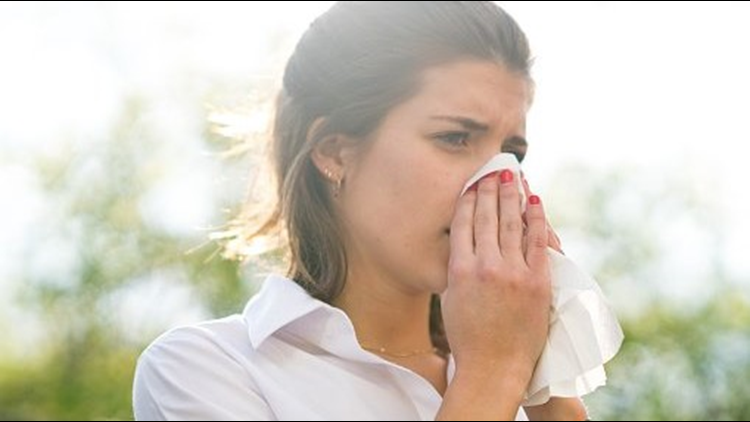KUSA — Those who suffer from allergies year after year often find their own ways to deal with the sniffling and sneezing.
Many of you have been sharing the at-home remedies that work best for you.
Here are some of your suggestions, as well as an explanation for why they work.
This is based on immunotherapy, or regularly having a small amount of an allergen so our body gets used to it. Honey contains pollen, so the idea of eating local honey is that you'd be building up immunity to the local irritants. Many people swear by this, and it certainly works on principle. However, local honey will only contain certain pollens so if your allergies are caused by something not found in honey (like weeds, trees or grasses) it may not help as much as you'd hoped.
It's a pretty basic concept: get whatever irritants are trapped in your nose out. This can be done with a few different devices: a bulb syringe, a squeeze bottle or, most popularly, a neti pot. Flushing out the sinuses doesn't actually get rid of the allergens themselves. It helps to thin the mucus in your nose so it and the cilia (tiny hair-like structures that keep bacteria and dirt out) can do their jobs better. Just be sure you're using distilled, salinated water.
This is a similar idea to eating local honey: slowly getting your body used to certain bacteria in order to aid your natural immune system. Probiotics are a form of good bacteria and eating them will help change the balance in your gut. That, in turn, can lessen the immune system's need to flare up in response to pollen and other allergens, thus lessening your symptoms.
Air purifies can be a great way to help if you're already doing other things to avoid allergens. They do clean the air, and will therefore alleviate any dust and pollen that is floating through the house. But don't expect your purifier to magically pick up dust hiding under the bookshelf you haven't moved in four years; it has to capture it before it settles. The most helpful place to keep a purifier? In the bedroom. When you sleep, your respiratory relaxes and you're more susceptible to an attack.
It sounds obvious, but this is one of the best things you can do to prevent allergies. On the worst allergy days, stay inside, keep your windows closed and run the air conditioning. If you do decide to go outside, wear sunglasses and a hat and change clothes and take a shower when you come back in so you aren't keeping the allergens with you for the rest of the day.
Do you have allergy advice? Share your tips below:



